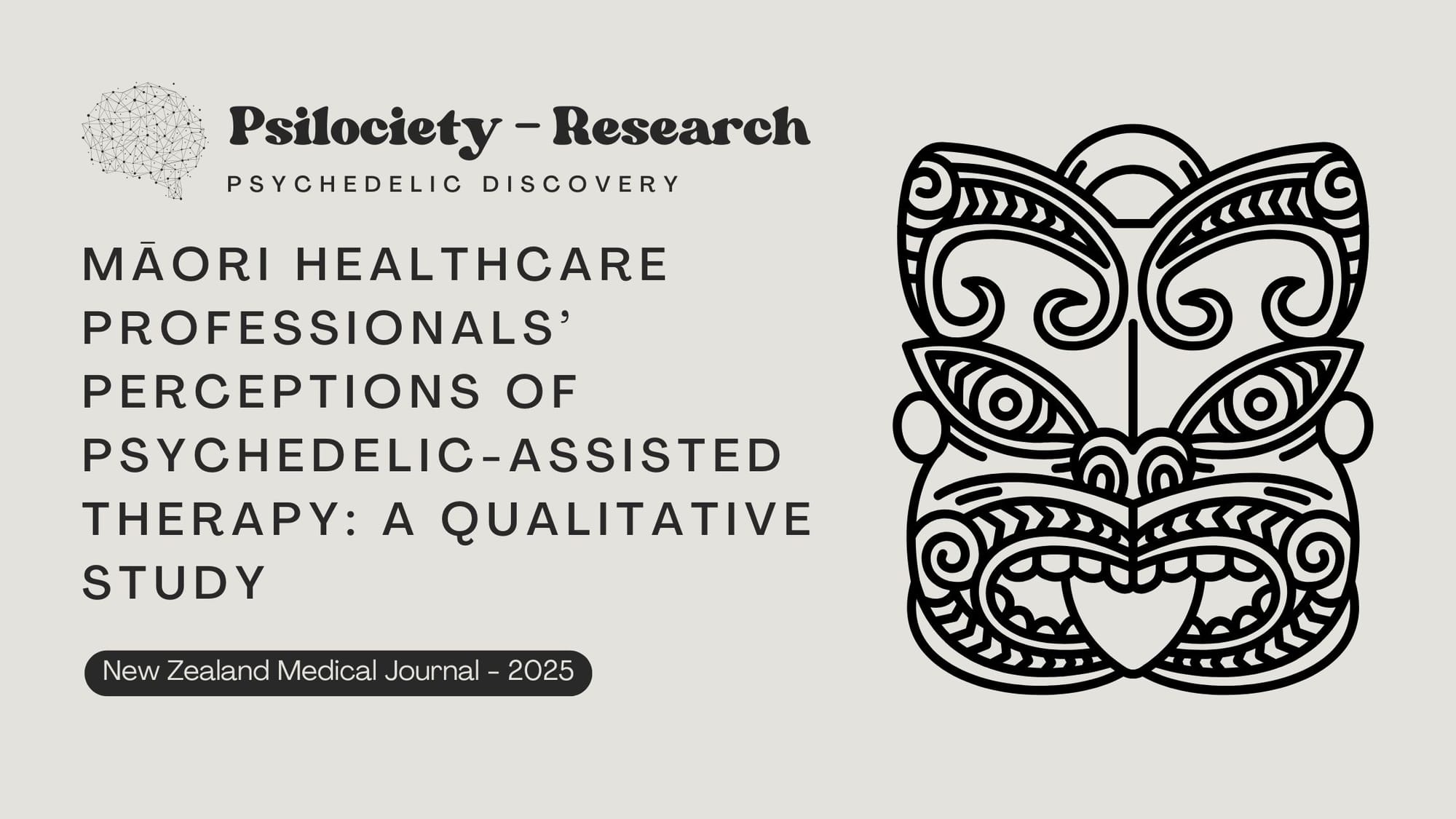Māori Healthcare Professionals’ Perceptions of Psychedelic-Assisted Therapy: A Qualitative Study
A qualitative study explores Māori healthcare professionals’ views on psychedelic therapy, highlighting cultural considerations and equity issues.

Title & Introduction
- Paper Title: Māori Healthcare Professionals’ Perceptions of Psychedelic-Assisted Therapy: A Qualitative Study
- Published In: New Zealand Medical Journal
- Publish date: March 14, 2025
- Authors: Carly Hanna, Eva Morunga, Alesha Wells, Lisa M. Reynolds
- Objective: To explore the perspectives of Māori healthcare professionals regarding psychedelic-assisted therapy (PAT) in Aotearoa New Zealand.
- Importance: Highlights the cultural considerations and potential challenges in integrating psychedelic therapies within Māori healthcare frameworks.
Summary & Takeaways
Key Takeaway: Increased awareness and culturally informed research could improve the acceptance of psychedelic-assisted therapy within Māori healthcare frameworks.
Practical Application:
Findings emphasize the need for culturally sensitive psychedelic research and the integration of Te Ao Māori (Māori worldview) perspectives into therapy models.
Key Background Information
- Context: While psychedelic substances have a history of use in Indigenous traditions globally, their role in Māori healing traditions remains unclear. Addressing cultural safety is essential for equitable healthcare access.
- Hypothesis: Māori healthcare professionals are generally open to psychedelic therapy but require further research and cultural alignment for it to be acceptable within Māori healthcare models.
Methodology
- Study Design: Qualitative, semi-structured interview study.
- Participants: 13 Māori healthcare professionals.
- Intervention/Exposure: Interviews on psychedelic awareness, knowledge, and attitudes using Māori health models Te Whare Tapa Whā and Te Wheke.
- Controls: Not applicable.
- Duration: Not specified.
Key Findings
Primary Outcomes:
- Greater awareness of PAT leads to increased openness to its potential.
- More research and education on psychedelic therapies are needed.
- PAT has the potential to align with Te Ao Māori principles.
- Equitable access to PAT is crucial for Māori communities.
Secondary Outcomes:
- Historical suppression of traditional Māori healing methods impacts the perception of PAT.
- The integration of psychedelic therapies must align with holistic Māori health models.
Interpretation & Implications
- Conclusion: Māori healthcare professionals are generally supportive of psychedelic therapy research but stress the need for cultural safety and community education.
- Implications: Policymakers and researchers should prioritize culturally aligned frameworks when introducing psychedelic-assisted therapy in New Zealand.
- Limitations: Small sample size and focus on healthcare professionals may not fully represent broader Māori perspectives.
Researchers & Publication
- Researchers: Carly Hanna, Eva Morunga, Alesha Wells, Lisa M. Reynolds
- Publication Name: New Zealand Medical Journal
- Study URL: https://doi.org/10.26635/6965.6740

